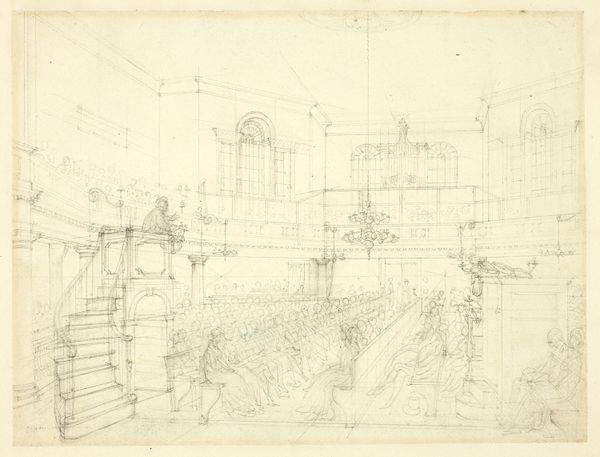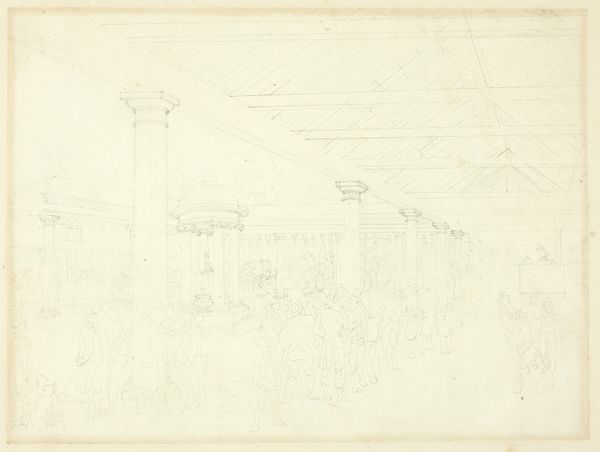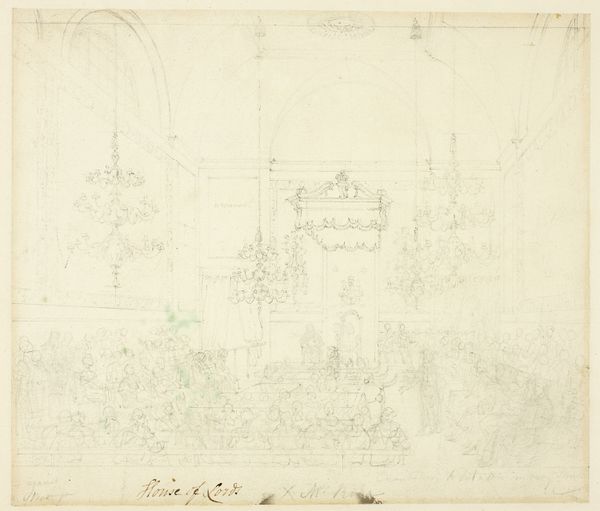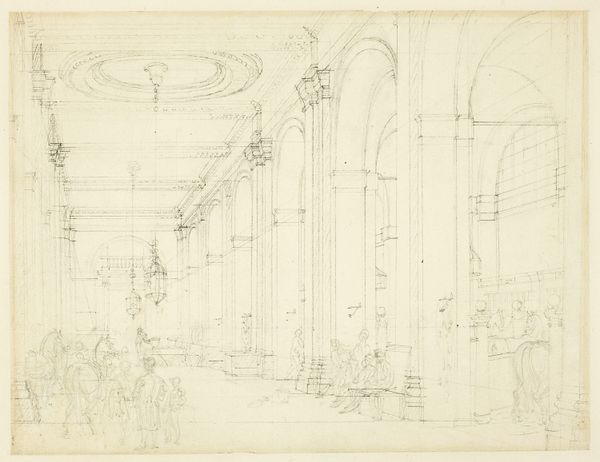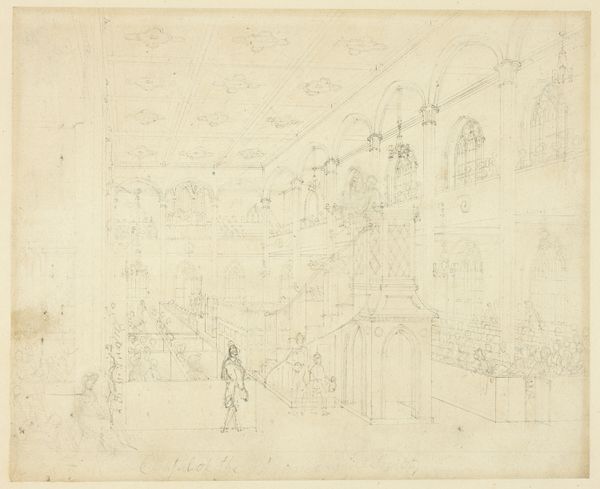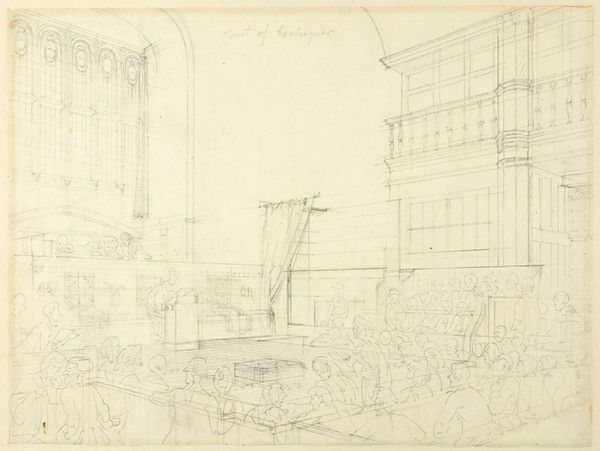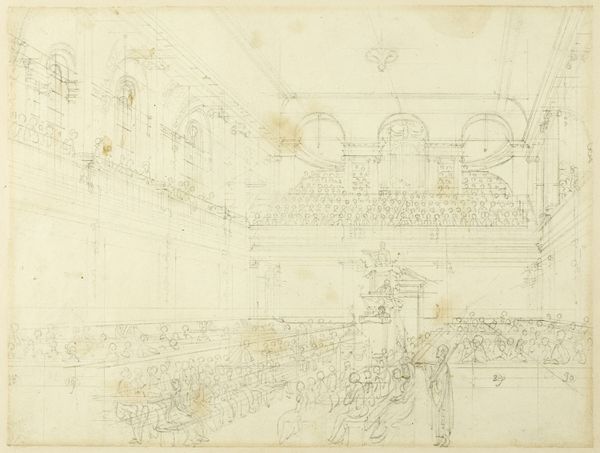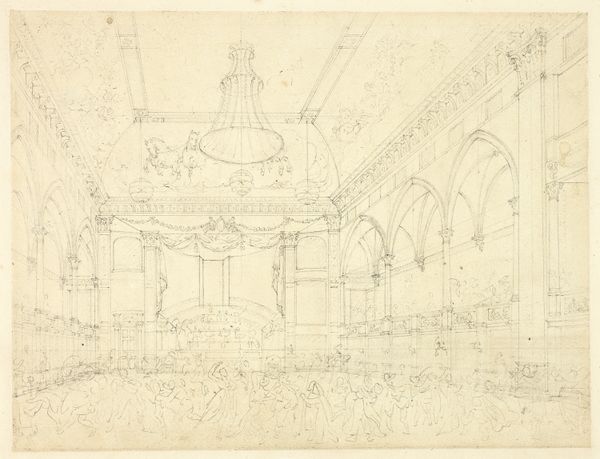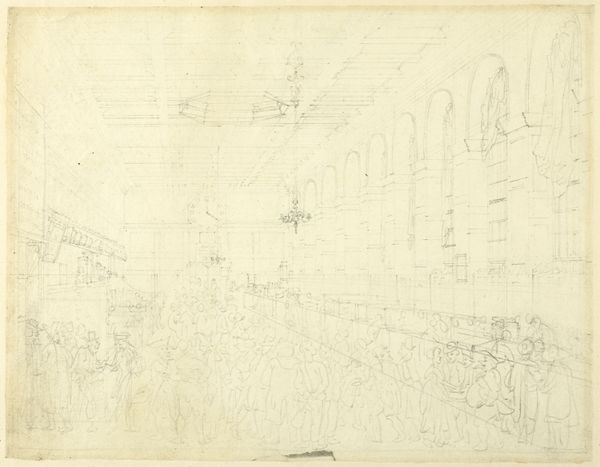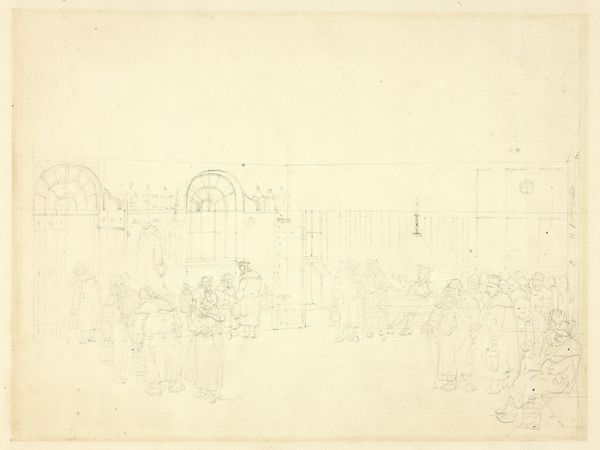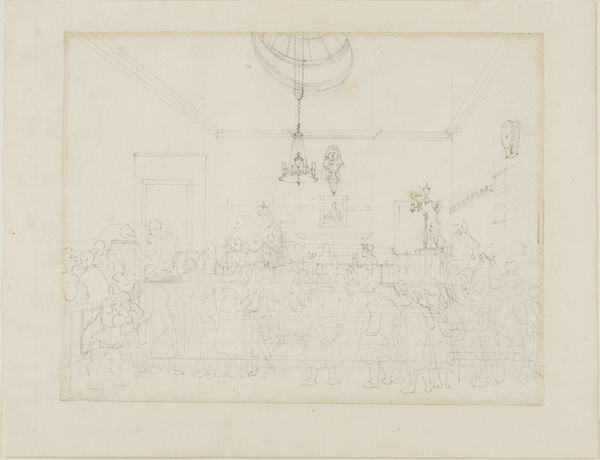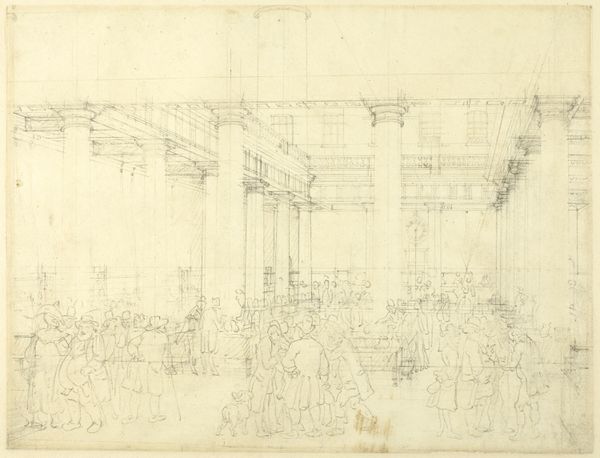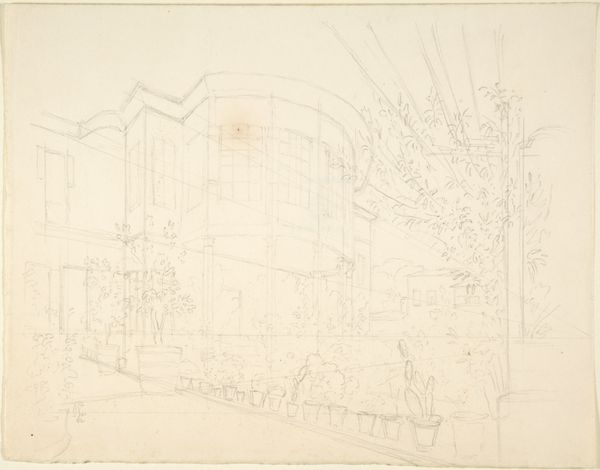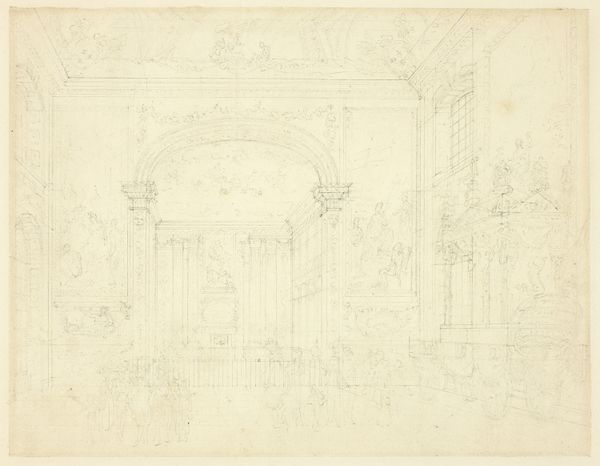
Study for Old Bailey, from Microcosm of London c. 1809
0:00
0:00
drawing, print, etching, paper, pencil
#
drawing
# print
#
etching
#
etching
#
paper
#
pencil
#
line
#
cityscape
#
realism
Dimensions: 198 × 260 mm
Copyright: Public Domain
Augustus Charles Pugin created this study for Old Bailey as part of his series "Microcosm of London." It’s rendered with delicate lines in graphite on paper. The composition meticulously maps the courtroom's architecture, with particular attention to linear perspective. The structural elements, like the columns and tiered seating, are laid out in a systematic manner. Pugin's use of linear precision evokes a sense of order and clarity, yet the faintness of the lines gives the scene an ethereal, ghost-like quality. This depiction can be seen as a commentary on the Enlightenment's drive to categorize and rationalize social spaces. Pugin's Old Bailey is not just a building but a representation of the judicial system, structured to embody reason and justice. However, the drawing's lack of detail and unfinished quality imply a critical view. The linear quality creates a space that is both ordered and strangely incomplete. It’s as if Pugin invites us to question the values of justice encoded within its walls.
Comments
No comments
Be the first to comment and join the conversation on the ultimate creative platform.
